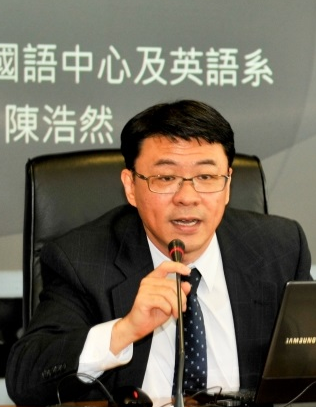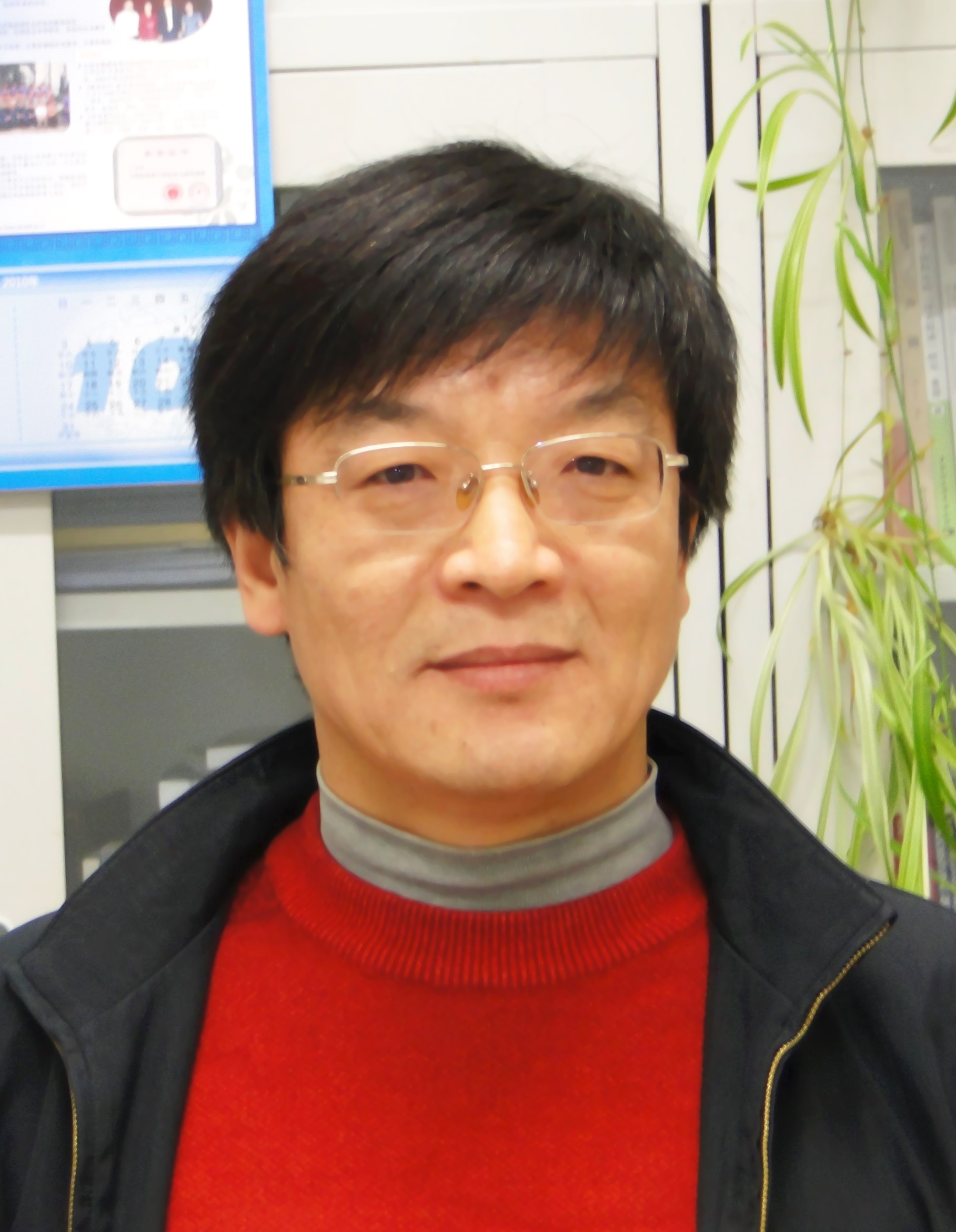Keynote Speakers

Professor Agnes Kukulska-Hulme
Title of Talk:
Contextual Assistance in Language Learning
Title of Talk:
Contextual Assistance in Language Learning
About the speaker:
Agnes Kukulska-Hulme is Professor of Learning Technology and Communication in the Institute of Educational Technology at The Open University, UK, and Past-President of the International Association for Mobile Learning. In her current role she leads the Learning Futures programme in The Open University. Her research spans several inter-related fields including linguistics, language learning and technology-supported learning, with a special focus on mobile language learning. Professor Kukulska-Hulme’s publications include over 130 articles, papers and books. She has also produced commissioned reports for UNESCO, British Council, the Commonwealth of Learning, Cambridge University Press, and the International Research Foundation for English Language Education.
Agnes Kukulska-Hulme is Professor of Learning Technology and Communication in the Institute of Educational Technology at The Open University, UK, and Past-President of the International Association for Mobile Learning. In her current role she leads the Learning Futures programme in The Open University. Her research spans several inter-related fields including linguistics, language learning and technology-supported learning, with a special focus on mobile language learning. Professor Kukulska-Hulme’s publications include over 130 articles, papers and books. She has also produced commissioned reports for UNESCO, British Council, the Commonwealth of Learning, Cambridge University Press, and the International Research Foundation for English Language Education.
Abstract:
Language learners frequently require individual help, encouragement and motivation. They also face situations where they need context-specific assistance. Smartphones and some wearable devices are within learners’ easy reach on a daily basis which means that they may sometimes be the first port of call for all types of assistance. Learning with these technologies is taking on new characteristics as mobile phones become “smarter” and ever more integrated with activities in everyday life, and wearable devices intensify the close relationship between people and technology. Recognizing that in language learning, context is all-important, this talk explores the multifaceted notion of context and interrogates current approaches to contextual assistance. The notion that a small device can offer ‘personal’ assistance to its user has been around a long time, but language learning is one field in which ‘intelligent’ assistance is likely to be further developed and adopted to help with particular learning needs. Some researchers are proposing a new generation of intelligent virtual agents with human appearance and the capability to teach aspects of foreign languages. The research can prompt discussion about how such agents should be designed in relation to the unique qualities of human teaching, and how best to support individual needs in relation to specific contexts or cultural settings. Furthermore, the notion of contextual assistance is very relevant to learners when teachers are in short supply, hard to access, or when additional practice, feedback or support are needed.
Language learners frequently require individual help, encouragement and motivation. They also face situations where they need context-specific assistance. Smartphones and some wearable devices are within learners’ easy reach on a daily basis which means that they may sometimes be the first port of call for all types of assistance. Learning with these technologies is taking on new characteristics as mobile phones become “smarter” and ever more integrated with activities in everyday life, and wearable devices intensify the close relationship between people and technology. Recognizing that in language learning, context is all-important, this talk explores the multifaceted notion of context and interrogates current approaches to contextual assistance. The notion that a small device can offer ‘personal’ assistance to its user has been around a long time, but language learning is one field in which ‘intelligent’ assistance is likely to be further developed and adopted to help with particular learning needs. Some researchers are proposing a new generation of intelligent virtual agents with human appearance and the capability to teach aspects of foreign languages. The research can prompt discussion about how such agents should be designed in relation to the unique qualities of human teaching, and how best to support individual needs in relation to specific contexts or cultural settings. Furthermore, the notion of contextual assistance is very relevant to learners when teachers are in short supply, hard to access, or when additional practice, feedback or support are needed.

Professor Randi Reppen
Title of Talk:
English language education: Perspectives from corpus linguistics
Title of Talk:
English language education: Perspectives from corpus linguistics
About the speaker:
Randi Reppen is Professor of Applied Linguistics and TESL at Northern Arizona University (NAU) where she teaches in the MA and Ph.D. programs. She has extensive ESL and teacher training experience, including 11 years as the Director of NAU's Intensive English program. Randi has a keen interest in using corpus research to inform language teaching and to develop better language teaching materials. She is the author of Using corpora in the Language Classroom and the lead author of a corpus informed grammar series, Grammar and Beyond. Recent journal publications appear in the Journal of Second language Writing and TESOL Quarterly.
Randi Reppen is Professor of Applied Linguistics and TESL at Northern Arizona University (NAU) where she teaches in the MA and Ph.D. programs. She has extensive ESL and teacher training experience, including 11 years as the Director of NAU's Intensive English program. Randi has a keen interest in using corpus research to inform language teaching and to develop better language teaching materials. She is the author of Using corpora in the Language Classroom and the lead author of a corpus informed grammar series, Grammar and Beyond. Recent journal publications appear in the Journal of Second language Writing and TESOL Quarterly.
Abstract:
This presentation begins with a brief overview of how language teaching has changed over the years. Then we examine recent innovations in teaching, materials, and technology with a focus on how language research, especially corpus linguistic research and resources, can be used to inform instruction. Applications of corpus research and online corpus resources will be presented as resources for both teachers and students, and as a way to bring 'real language' into our language classes. Examples and practical ideas will be presented.
This presentation begins with a brief overview of how language teaching has changed over the years. Then we examine recent innovations in teaching, materials, and technology with a focus on how language research, especially corpus linguistic research and resources, can be used to inform instruction. Applications of corpus research and online corpus resources will be presented as resources for both teachers and students, and as a way to bring 'real language' into our language classes. Examples and practical ideas will be presented.
Invited Speakers

Professor Howard Hao-Jan Chen
Title of Talk:
Cool English, a Comprehensive Language Learning Website for Taiwanese EFL Students
Title of Talk:
Cool English, a Comprehensive Language Learning Website for Taiwanese EFL Students
About the speaker:
Howard Hao-Jan Chen (Ph. D, University of Pennsylvania) is Professor and Chairperson of English Department at National Taiwan Normal University, Taipei, Taiwan, Republic of China. Professor Chen has extensive experiences developing various CALL websites and he also published several papers in CALL Journal, ReCALL Journal and several related language learning journals. His research interests include computer-assisted language learning, corpus research, and second language acquisition. He is now developing and maintaining a large English Learning website, Cool English, serving many elementary and secondary school students in Taiwan.
Howard Hao-Jan Chen (Ph. D, University of Pennsylvania) is Professor and Chairperson of English Department at National Taiwan Normal University, Taipei, Taiwan, Republic of China. Professor Chen has extensive experiences developing various CALL websites and he also published several papers in CALL Journal, ReCALL Journal and several related language learning journals. His research interests include computer-assisted language learning, corpus research, and second language acquisition. He is now developing and maintaining a large English Learning website, Cool English, serving many elementary and secondary school students in Taiwan.
Abstract:
It’s critical for EFL students to develop good English ability in this globalized world. To enhance Taiwanese EFL students’ learning motivation and English ability, a comprehensive English online learning website (Cool English: http: www.coolenglish.edu.tw) was developed by English department of National Taiwan Normal University. The research and development funding for this website was provided by Ministry of Education. The site has two major sections: one is designed for elementary school students, and the other is for junior high school students. For students to improve their English skills and knowledge, this website has adopted a wide variety of new technologies. For listening, more than 600 animated videos were created for students, they can then immerse in different authentic contexts. There were also several learning tools for EFL students to adjust speech rate and to consult an online dictionary. For speaking, advanced automated speech recognition technology and AIML-based chat bots were developed to facilitate students’ speaking skills. For reading, rich multimedia reading materials and quizzes were made available to students. For vocabulary learning, many theme-based vocabulary exercises were created to allow students to practice various essential vocabulary items. For grammar, extensive video tutorials and extensive exercises were provided to enhance students’ grammatical competence. In addition, to make English learning more engaging, several types of computer games were also developed. These games include a 3D role-playing video games, various HTML5 games, downloadable mobile games, and unity-based quiz games. So far, the site has about 100,000 registered users. It is expected that more new users will join this site after we begin to promote this site in more elementary and junior high schools in Taiwan.
It’s critical for EFL students to develop good English ability in this globalized world. To enhance Taiwanese EFL students’ learning motivation and English ability, a comprehensive English online learning website (Cool English: http: www.coolenglish.edu.tw) was developed by English department of National Taiwan Normal University. The research and development funding for this website was provided by Ministry of Education. The site has two major sections: one is designed for elementary school students, and the other is for junior high school students. For students to improve their English skills and knowledge, this website has adopted a wide variety of new technologies. For listening, more than 600 animated videos were created for students, they can then immerse in different authentic contexts. There were also several learning tools for EFL students to adjust speech rate and to consult an online dictionary. For speaking, advanced automated speech recognition technology and AIML-based chat bots were developed to facilitate students’ speaking skills. For reading, rich multimedia reading materials and quizzes were made available to students. For vocabulary learning, many theme-based vocabulary exercises were created to allow students to practice various essential vocabulary items. For grammar, extensive video tutorials and extensive exercises were provided to enhance students’ grammatical competence. In addition, to make English learning more engaging, several types of computer games were also developed. These games include a 3D role-playing video games, various HTML5 games, downloadable mobile games, and unity-based quiz games. So far, the site has about 100,000 registered users. It is expected that more new users will join this site after we begin to promote this site in more elementary and junior high schools in Taiwan.

Professor Liang Maocheng
Title of Talk:
Automated online diagnosis of learner written responses with Big Data technology
Title of Talk:
Automated online diagnosis of learner written responses with Big Data technology
About the speaker:
Moacheng LIANG, PhD., is a professor of Applied Linguistics at the National Research Centre for Foreign Language Education, Beijing Foreign Studies University. Professor Liang is currently the chairperson of the Corpus Linguistics Society of China. His research interests include Second Language Writing, Natural Language Processing, Corpus Linguistics and Data Science. In recent years, his research focuses on Automated Writing Evaluation and Automated Essay Scoring. He is the system architect for iWrite and iRater, the former being an online tutoring and diagnostic system and the latter being an automated scoring system, both of which are targeted for second language writing contexts. He is the author of a number of monographs, including Constructing a Model for the Automated Scoring of Chinese EFL Learners' Essays (2010) and Toward an Automated Essay Scoring System for Large-scale EFL Tests (2011).
Moacheng LIANG, PhD., is a professor of Applied Linguistics at the National Research Centre for Foreign Language Education, Beijing Foreign Studies University. Professor Liang is currently the chairperson of the Corpus Linguistics Society of China. His research interests include Second Language Writing, Natural Language Processing, Corpus Linguistics and Data Science. In recent years, his research focuses on Automated Writing Evaluation and Automated Essay Scoring. He is the system architect for iWrite and iRater, the former being an online tutoring and diagnostic system and the latter being an automated scoring system, both of which are targeted for second language writing contexts. He is the author of a number of monographs, including Constructing a Model for the Automated Scoring of Chinese EFL Learners' Essays (2010) and Toward an Automated Essay Scoring System for Large-scale EFL Tests (2011).
Abstract:
Automated Writing Evaluation (AWE), the use of modern technology for the automated online diagnosis of learner-provided written responses, is a relatively new practice, compared with Automated Essay Scoring (AES) whose purpose is to generate reliable scores for learners’ written performance. This paper introduces iWrite®, yet another AWE system, which draws heavily on the latest Big Data technology. The system is based on theories in the evaluation of second language writing, and provides diagnostic feedback on possible weaknesses as well as strengths in learner-provided written texts. The presentation will give a general introduction to the system, with a special emphasis on the automated evaluation of coherence in second language texts.
Key Words: Automated Writing Evaluation, iWrite, Big Data, coherence
Automated Writing Evaluation (AWE), the use of modern technology for the automated online diagnosis of learner-provided written responses, is a relatively new practice, compared with Automated Essay Scoring (AES) whose purpose is to generate reliable scores for learners’ written performance. This paper introduces iWrite®, yet another AWE system, which draws heavily on the latest Big Data technology. The system is based on theories in the evaluation of second language writing, and provides diagnostic feedback on possible weaknesses as well as strengths in learner-provided written texts. The presentation will give a general introduction to the system, with a special emphasis on the automated evaluation of coherence in second language texts.
Key Words: Automated Writing Evaluation, iWrite, Big Data, coherence
Professor Tang Jinlan
Title of Talk:
Technology-enhanced English Language Teacher Education in Action
Title of Talk:
Technology-enhanced English Language Teacher Education in Action
About the speaker:
Jinlan Tang is Professor and Deputy Dean in the School of Online and Continuing Education, Beijing Foreign Studies University. Her research has covered the areas of EFL teaching and learning in the e-learning environment, teacher training, language assessment and tutor feedback. She has published over thirty research papers in academic journals and two books, and served as the principal investigator of several research projects. She is also the Secretary-in-General of China Computer-Assisted Language Learning Association (2012-2016) (ChinaCALL, www.chinacall.org.cn), researcher of China Language Assessment Center, Beijing Foreign Studies University, member of the ISO TC 232 (since 2011). She serves as the associate editor of the International Journal of Computer-assisted Language Teaching and Learning (IJCALLT), and as an editorial board member of Electronic Journal of Foreign Language Teaching (e FLT) and Australian Journal of Applied Linguistics respectively
Jinlan Tang is Professor and Deputy Dean in the School of Online and Continuing Education, Beijing Foreign Studies University. Her research has covered the areas of EFL teaching and learning in the e-learning environment, teacher training, language assessment and tutor feedback. She has published over thirty research papers in academic journals and two books, and served as the principal investigator of several research projects. She is also the Secretary-in-General of China Computer-Assisted Language Learning Association (2012-2016) (ChinaCALL, www.chinacall.org.cn), researcher of China Language Assessment Center, Beijing Foreign Studies University, member of the ISO TC 232 (since 2011). She serves as the associate editor of the International Journal of Computer-assisted Language Teaching and Learning (IJCALLT), and as an editorial board member of Electronic Journal of Foreign Language Teaching (e FLT) and Australian Journal of Applied Linguistics respectively
Abstract:
Traditional teacher training programs confined by the usual short time span and F2F mode of instruction can only benefit a limited number of teachers. Moreover, except learning some teaching principles and skills, the majority of the trainee teachers participating in these programs could not acquire a comprehensive pedagogical knowledge and skills framework of English language teaching (ELT), which hindered the development of their overall ELT pedagogical competence and flexible use of teaching strategies. Technology affordances increased the accessibility of teacher training to in-service teachers across time and place borders. Many of the online and distance teacher training or degree programs include mainly self-study of online materials with sporadic discussions. Nevertheless, trainees value synchronous communication with teachers and other peers and prefer F2F or online live tutorials, which have been made possible with the rapid development of Information and Communications Technology. This talk will introduce how a blended-mode Master of Arts in English Language Teaching program informed with a social-constructivist and connectivist view of learning was implemented and evaluated, pinpointing pedagogical and research implications.
Traditional teacher training programs confined by the usual short time span and F2F mode of instruction can only benefit a limited number of teachers. Moreover, except learning some teaching principles and skills, the majority of the trainee teachers participating in these programs could not acquire a comprehensive pedagogical knowledge and skills framework of English language teaching (ELT), which hindered the development of their overall ELT pedagogical competence and flexible use of teaching strategies. Technology affordances increased the accessibility of teacher training to in-service teachers across time and place borders. Many of the online and distance teacher training or degree programs include mainly self-study of online materials with sporadic discussions. Nevertheless, trainees value synchronous communication with teachers and other peers and prefer F2F or online live tutorials, which have been made possible with the rapid development of Information and Communications Technology. This talk will introduce how a blended-mode Master of Arts in English Language Teaching program informed with a social-constructivist and connectivist view of learning was implemented and evaluated, pinpointing pedagogical and research implications.

